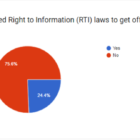
Virtual reality tools are pushing the frontiers of storytelling, with potential to quite literally immerse the audience into the story. The nascent technology is already being leveraged by some newsrooms. Continue Reading →
Uncovering Asia 2016 (https://2016.uncoveringasia.org/author/euniceau/)

Virtual reality tools are pushing the frontiers of storytelling, with potential to quite literally immerse the audience into the story. The nascent technology is already being leveraged by some newsrooms. Continue Reading →

When reporting on minorities and the disenfranchised, it’s critical to understand the historical-cultural context and sensitivities, a panel of veteran investigative journalists told participants at the Uncovering Asia 2016 conference in Nepal. Prangtip Daorueng from Thailand, Stella Paul from India, and Esther Htusan from Myanmar have all covered disenfranchised communities in their countries. Below are their tips on smart reporting, from story conceptualization to dealing with the aftermath. Finding the Story
“When you want to do a story about the minorities, start with the ordinary people who suffer.”Covering minorities is about the people, not power, Daorueng underscored. “Journalists like to check on politicians and tycoons. Continue Reading →

Newsrooms teams that traditionally included editors, reporters, designers, and photographers are increasingly transforming to make room for data experts. Here’s what you need to know to run a data team. Continue Reading →

The key to investigating corruption is following the money, muckrakers at the Uncovering Asia 2016 conference in Nepal agreed, but how do you find the truth? Continue Reading →

Corrupt authorities, be very afraid. The Uncovering Asia 2016 conference has assembled some 350 top reporters, data journalists, and media law and security experts from 45 countries to tool up, network and collaborate on cross-border investigative projects. Continue Reading →

A simple idea at the end of the 20th century – to gather the world’s investigative journalists to share their knowledge with each other – gave birth to the Global Investigative Journalism Network, which has now grown to more than 138 member organizations in 62 countries. Continue Reading →

Journalists surveyed in Pakistan are lacking in harnessing the potential of data journalism: as a survey found that majority of the respondents did not utilize Right to Information laws to obtain official data and only a handful of journalists knew how to scrape data from the web. Continue Reading →

Governments are “playing catch-up” after recognizing that the Internet can be an effective tool for voices to be heard. Continue Reading →